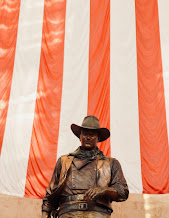John 9:4, "We must quickly carry out the tasks assigned us by the one who sent us. The night is coming, and then no one can work."
A few weeks back we had a small stretch of drought. Actually, I probably shouldn't call it a drought but three weeks without rain in Indiana in the early summer feels like a drought. The grass was drying and the weeks weren't even growing.
No rain, of course, meant I didn't have to mow the yard but I had to water my pitiful little garden. Little is relative of course so 5 rows of beans, 28 tomato plants, a row of each sunflower, beets, and carrots, 4 hills of zucchini, 4 hills of cucumbers, watermelons, and pumpkins might be big to you. For me, small garden might not be the right word, but more on that later. I watered and weeded a little. Weeding a little was the problem. I wasn't worried too much the weeds were small, the tomatoes could wait to be tied up, and I thought I had time.
Then the rains came, and came, and came, usually when I was off work so I didn't have to worry about watering the garden. YAH! or maybe not. Those weeds that were so small aren't now. Where did my carrots go? The beets are gone and somewhere among the weeds, beans and onions can be seen, mostly. The tomatoes are leaning over one another and I can't tell where one is and another begins. However, the sunflowers are taller than the weeds about them (small comfort).
Now I have to mow the too tall grass, vegetables needing tending. and a garden of weeds. If only...
This is where this article comes in because I realized if I had weeded in the drought I wouldn't be having this trouble. I had the time I wasn't spending on mowing I could have done this, but now I have a mess. At the time I should be tending my vegetables and preparing them to produce or even gathering some of the fresh vegetables, I need to weed. Not just weed but now I have a lawn to maintain. Bother!
So how does this apply to life?
I would suggest there are times when things aren't busy when things aren't seeming to grow. It isn't that the weeds aren't growing nothing you or I are trying is going anywhere. If we take the time then to deal with the small problems which if left unattended will grow into a problem then we may find that we have a bigger problem later. There are things in our lives that we may be able to ignore during the time of drought, but we need to remember we won't always be in this period of our lives. Waiting to weed things out, doing the maintenance, and the like is a bad idea.
Don't wait.
Look around and ask yourself, "What should I do when things aren't growing?" or "How do I prepare for when things do begin to grow?" For me, I look at my busy life and wonder? Should I have started (weeded) this garden project? I can see clearly now, that the answer is Yes. I started it when things were just starting to get busy in my life. Now as strange as it may sound my garden isn't a blessing. Yes, my garden is a weed. Perhaps you have things in your life that if you're honest with yourself might be a weed later. May I suggest, Weed it now before it grows. If you don't your life will look like my garden and it won't be a blessing.
What if you have waited? Well, you have a lot of hard work and probably if you are honest, you knew better. I did. So, get your gloves out and start pulling because those weeds aren't getting smaller.









